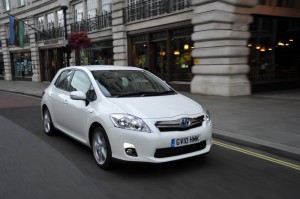
Author: David Rawlings
Let’s not hide from the elephant in the room; the government needs money and the 2012 Budget was never going to be a giveaway for motorists, especially after recent fuel duty rises had to be abandoned.
- Read more on our coverage of the Budget 2012 changes here
Businesses which buy cars will find that from April 2013 the whole-life-cost of cars with CO2 emissions exceeding 130 g/km will be more expensive as these cars move to the special rate pool and attract capital allowances of only 8%. But, continuing the government’s incentive to encourage us to buy low emission cars, those cars with CO2 emissions of 95 g/km or lower will be eligible for 100% first year allowances until March 2015.
The Chancellor didn’t overlook businesses which lease cars. From April 2013 the lease rental restriction will apply to cars with CO2 emissions exceeding 130 g/km and leasing companies will not be able to claim first year allowances on the cars they purchase.
Whether you lease or buy cars two simple rules will apply:-
- Firstly, because tax will play an even more important part in the whole-life-cost calculation, don’t focus on invoice price or rental.
- Secondly, low emission cars will always make more financial sense.
In addition to the measures outlined above, company car drivers’ benefit-in-kind will continue to increase, meaning drivers will pay more income tax, and of course employers will pay more Class 1A National Insurance Contributions. Once again, if you want to secure a good financial deal, focus on low emission cars. But don’t just consider the first year – look at how the benefit-in-kind will change over across the whole contract term or replacement cycle.
Employer provided free fuel should have disappeared many years ago but thousands of employees cling on to this potentially worthless benefit.
April’s increase of the fuel benefit multiplier, from £18,800 to £20,200, should be a wake up call for many drivers and their employers, but the tax increases don’t stop there; the increase in the benefit-in-kind percentages will also increase the driver’s income tax charge and the employer’s Class 1A NIC liability. But somehow I don’t think many drivers or employers will actually wake-up and smell the coffee! Perhaps the future RPI plus 2% increase to the fuel benefit multiplier will have the desired effect?
In summary, if you are a business car manager you have a lot of thinking to do about company car policy: –
- What cars do you offer?
- Should you lease or buy?
- Is a cash alternative viable?
- Is it time to bite the free fuel bullet?
- And lots more besides!
Strategically, from a remuneration and reward perspective, our company car advice is that company cars still remain one of the best and most valuable benefits you can offer your staff.
Company cars will become more expensive over the coming years but they can still represent fantastic value for money if you take tax, time and whole-life-costs into account.
- David Rawlings is a director of BCF Wessex
Did you like this car review? We brought it to you for free. So please share it with your friends and help us grow bigger – and then we can share more great content with you! Email it to a friend, click Facebook to like us, send a tweet – and share the content!







